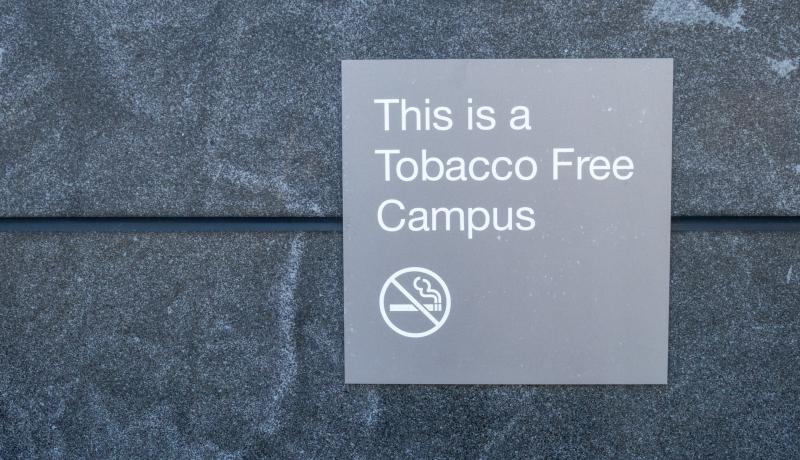NJCU Smoke, Tobacco, and Vape-Free Campus Policy
October 7, 2021

NJCU is committed to providing a healthy, comfortable, productive learning and working environment for its university community. The University recognizes that exposure to secondhand smoke cannot be limited or contained by enclosed spaces because smoke can easily travel outside of established boundaries via open doors, space in doorframes, and heating vents.
Per New Jersey City University policy, our campus is a smoke-free environment. Tobacco and marijuana use – including smoking, vaping, and use of Electronic Smoking Devices (ESDs) – is prohibited both inside of its buildings and facilities and also within all outdoor areas controlled by the University and its campus footprint.
This policy advocates for a healthy environment by eliminating smoking and exposure to smoking on campus in all forms in alignment with existing local and state ordinances, particularly the NJ Smoke-Free Air Act (NJAC 8:6-7.2).
This policy includes, but is not limited to, state-owned vehicles, parking lots, fields, sports/recreational areas, residence halls, and any other area designated as college property.
Restrictions include, but are not limited to: tobacco, clove cigarettes, hookahs, marijuana, e-cigarettes, chewing tobacco, vapor-producing products, and electronic smoking devices.
The sale or free distribution of tobacco products, including merchandise, will be prohibited on campus or at school events. Student organizations are prohibited from accepting money or gifts from tobacco or ESD producing companies, including:
- Parties sponsored by tobacco companies or allowing tobacco companies to distribute free, reduced-price, or fully- priced tobacco products (t-shirts, hats, etc.) on campus;
- All tobacco advertising, such as billboards and signs owned and used by NJCU; and
- Parties producing Electronic Smoking Devices.
Tobacco and ESD advertisements are prohibited in college-run publications and on grounds or facilities, including athletic facilities, owned or used by NJCU.
Secondhand smoke, also known as environmental tobacco smoke, has been identified by the U.S. Environmental Protection Agency (EPA) as a Class A carcinogen. Its many detrimental effects on health are well established and include triggering asthma attacks, causing lung diseases, particularly lung cancer, and various cardiovascular diseases.
For further information on NJCU's Smoke-, Tobacco- and Vape-Free Policy, and consequences for violating it, please view the policy webpage.